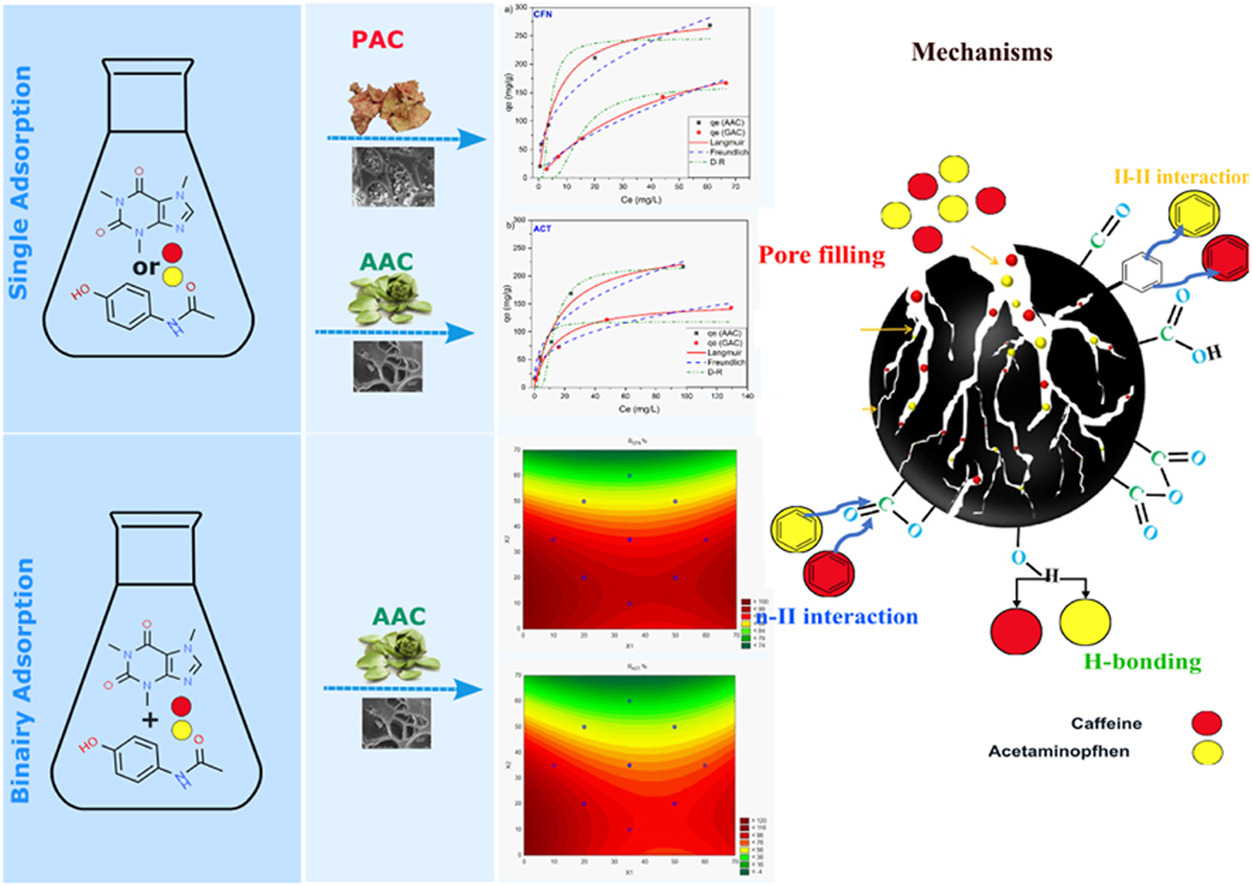Effective Removal of Caffeine and Painkillers. Scientists Turn Food Waste into Water Cleaners.
Researchers at the University of Chemistry and Technology in Prague have achieved a significant breakthrough in water purification by developing low-cost activated carbons derived from biomass waste, specifically artichoke leaves and pomegranate peels. This innovative method effectively removes common pharmaceutical contaminants, caffeine (CFN) and acetaminophen (ACT), from water sources.

Figure 1: Graphical abstract
Activated carbons were synthesized using artichoke leaves (AAC) and pomegranate peels (PAC), materials that are typically discarded as waste. This not only provides an economical solution but also contributes to waste reduction. The study's findings indicate that the activated carbons exhibited impressive adsorption capacities of 290.86 mg/g for caffeine and 281.18 mg/g for acetaminophen in single-component solutions. Additionally, the adsorbents performed efficiently across a wide pH range and demonstrated high specific surface areas (1095–1203 m²/g).
The study employed the central composite design of response surface methodology (RSM) to optimize the simultaneous removal of CFN and ACT. Statistical physics models were applied to describe the adsorption processes, indicating an antagonistic effect of CFN on ACT adsorption.
The release of pharmaceuticals like caffeine and acetaminophen into water bodies poses a significant threat to both human health and aquatic ecosystems. Conventional water treatment plants often fail to remove these contaminants effectively. The development of these biomass-derived activated carbons offers a sustainable and cost-effective alternative for water treatment, addressing the growing concern of pharmaceutical pollution.
“This research highlights the potential of using agricultural waste to create valuable materials for environmental remediation,” said Abir Melliti, the corresponding author and researcher at the University of Chemistry and Technology in Prague. “The successful removal of CFN and ACT demonstrates the feasibility of this approach in treating contaminated water, making it a promising solution for industrial and municipal applications.”
The study underscores the potential of using agricultural waste to create valuable materials for environmental remediation. The successful removal of CFN and ACT demonstrates the feasibility of this approach in treating contaminated water, making it a promising solution for industrial and municipal applications.
Text is based on the research article:
Sustainable removal of caffeine and acetaminophen from water using biomass waste-derived activated carbon: Synthesis, characterization, and modelling







